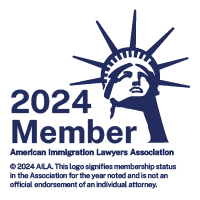J-1 Visa Waivers
Physicians who used J-1 visas for medical training generally have three (3) ways obtain a waiver of their two-year foreign (home country) residency requirement:
- Fear of persecution- Based upon persecution due to race, religion, or political opinion (similar to asylum)
- Interested Government Agency- State or Federal
- Exceptional hardship to U.S. Citizen/Legal Permanent Resident spouse or child- Based on factors such as physical, emotional, economic, employment, and lost career, education and health opportunities
While U.S. Citizenship & Immigration Services (USCIS) issues the final J-1 waiver approval, other government agencies are involved in the J-1 visa waiver application process. Specifically, for an Interested Government Agency waiver request, a J-1 visa waiver applicant must convince a qualified government agency to act as an the sponsor of the J-1 waiver application. Interested Government Agencies include:
- U.S. Department of State (DOS)
- State Department of Health Agencies (i.e., Ohio Department of Health, etc.)
- Department of Veterans Affairs (VA)
- Appalachian Regional Commission (ARC)
- Delta Regional Authority (DRA)
- Health and Human Services (HHS)
Procedure
The processing of J-1 waiver applications varies depending on the nature of the case. Nevertheless, all applicants must secure a J-1 Waiver case number by filing a Data Sheet and a processing fee with the DOS. The DOS Waiver Review Division will evaluate all waiver application before making recommendations to the USCIS.
Fear of Persecution and Exceptional Hardship
Fear of persecution and exceptional hardship J-1 waiver requests are submitted to and first reviewed by USCIS. USCIS conducts a preliminary appraisal and determines whether the application meets the basic criteria for a J-1 waiver approval. If the fear of persecution or exceptional hardship is sufficient, USCIS forwards the application to the DOS Waiver Review Division, where the application is evaluated more closely. The DOS Waiver Review Division makes a recommendation to either approve or deny each application to USCIS. Generally, USCIS follows the Waiver Review Division’s recommendation and issues the final J-1 visa waiver decision.
Interested Government Agency (IGA) Cases
Various IGAs employ different procedures and criteria for sponsoring J-1 visa waiver applications. Applicants must work very closely with the government agency to secure a positive recommendation. Clinical Physicians generally seek J-1 waivers in exchange for a commitment to work in a Health Professional Shortage Area (HPSA) or a Medically Underserved Area/Population (MUA/P) designated locations in the United States for at least three (3) years.
- State Department of Health Agencies
Interested state departments of public health can request up to thirty (30) J-1 waivers per federal fiscal year (10 of which may be in non-HPSA locations). The fundamental requirements are:
- No objection letter if home country government funded medical education or training,
- Full-time employment within ninety (90) days of receipt of the J-1 visa waiver,
- Primary care or specialty medicine practiced in an area designated as underserved for a 3 year period, and
- Fulfills the terms of the Contract.
The requirements vary extensively from state to state. Check with each state before proceeding. Ohio has a number of specific requirements, including an additional filing fee of $3571, which is non-refundable regardless of result.
- Department of Veterans Affairs
Physicians may work at Veterans Affairs medical centers and hospitals for at least three (3) years in exchange for J-1 visa waiver sponsorship. Subspecialists can also be sponsored. Some important facts about the VA based J-1 visa waiver process are:
- Relatively slow (3-6 months) processing through the VA system,
- Multi-level processing, and
- The VA administers/works on the bulk of the waiver process.
- Appalachian Regional Commission
The Appalachian Regional Commission (ARC) also requires three (3) years of service in a HPSA located within the Appalachian Region, which includes all of West Virginia and parts of 12 other states: Alabama, Georgia, Kentucky, Maryland, Mississippi, New York, North Carolina, Ohio, Pennsylvania, South Carolina, Tennessee, and Virginia. Waiver requests must have the support of the particular state within which the placement is located for the ARC to consider sponsorship. Doctors must practice primary care, which includes general family practice, general internal medicine, pediatrics, obstetrics/gynecology, or general psychiatry.
- Delta Regional Authority
The Delta Regional Authority also requires three (3) years of service in a HPSA located within the Mississippi Delta Region, which includes Alabama, Arkansas, Illinois, Kentucky, Louisiana, Mississippi, Missouri and Tennessee. Waiver requests must have the support of the particular state within which the placement is located. The DRA contacts the appropriate State agency to seek their opinion. Doctors in DRA waiver positions must practice primary care. The application requires a $3000 non-refundable filing fee.
- Health and Human Services
The U.S. Department of Health and Human Services will sponsor physicians for waivers of the J-1 foreign residency requirement to work in primary care HPSA locations. HHS placed doctors must not have undertaken any training beyond primary care and must practice primary care (defined as general internal medicine, pediatrics, family practice, obstetrics/gynecology, or general psychiatry).
In a separate program, the HHS will recommend a waiver where the physician is/will be an essential element/focal point involved in a program of national public interest. For a waiver along this route, the focus is upon research physicians.



